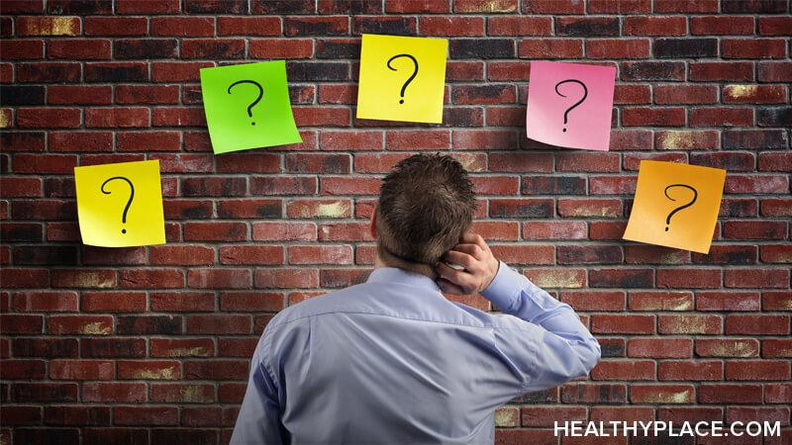The Good and Bad of Mental Health Self-Diagnosis

I wish to address the good and bad of mental health self-diagnosis after my last blog post Destigmatizing Self-Diagnosis of Mental Illnesses due to the response I’ve gotten. I knew from the moment I thought of writing that blog I would be faced with a large amount of disagreement, and although I didn’t receive as much as I had expected, it was still present. So here is, more or less, a response to everyone who commented and probably even some of those who didn’t on the good and bad of mental health self-diagnosis.
The Good of Mental Health Self-Diagnosis: Don’t Stop at Self-Diagnosis
Self-diagnosis, to me, is identifying what is “wrong” with us when no one else seems to be able to do so, but it doesn’t mean just stopping there. Self-diagnosis is the beginning point that can lead you to treatment or to seek out specific doctors that you might not have had access to, or knowledge of, otherwise. mental health self-diagnosis can be step one in getting a formal diagnosis, which, I'd say, is a good thing.
Once again, if you’re going to try medications, then definitely seek out a doctor first. Medications are not something to be tampered with, and treatments shouldn’t be taken lightly either. Those two aspects of mental health definitely take training beyond what we can look up online.
The Bad of Mental Health Self-Diagnosis: Self-Diagnosis Isn’t Always Easy to Deal With
This part is something I hadn’t thought of when I wrote the last post, but is definitely something that holds true, even in my situation. One commenter brought up the point that sometimes self-diagnosis can be dangerous because it can lead to hopelessness and feelings of defeat.
Because of the shame I felt when I was first dealing with excoriation disorder, when I found the term, at the time, chronic skin picking, I felt doomed. The wording and the description of the disorder were downright awful and I didn’t know how I would ever escape it. It took me years to shake that feeling and I only did so because I got to the “last straw,” as it were, and knew I needed to do something.
How to Deal with Self-Diagnosis Defeat
If you have self-diagnosed a mental health condition and are feeling this sense of defeat, here are tips to get through it.
Consult a doctor or counsellor. This is, honestly, a big one for me. Even with self-diagnosis, I don’t think professionals should be taken out of the equation. They can help you through this, even if they’re not entirely sure what you’re going through. Some strategies work across the board and can be a big help.
Seek out others with your diagnosis. Isolation is the worst thing and many of us already feel that way even before diagnosis. Peer support is huge and a simple “me too” can make all the difference in the world. Having a sounding board of experiences can let you know that you’re not going in alone and maybe they can even connect you to their resources.
Continue your research. Information, in my opinion, is hugely important. Many who commented on my first post said that professionals are the ones who are properly able to filter this information, and that may be true on some level; however, I don’t believe we should leave ourselves ignorant. Devouring information was a huge step in recovery for me and I know it has helped many other people, too.
Be careful of “100% Guarantee”/“Cure” traps. Nothing in this world is 100% guaranteed and even the word cure is a really big red flag. If it reads like an infomercial, don’t buy into it (Curing Mental Illness).
You can find Laura on Twitter, Google+, Linkedin, Facebook and her blog; also see her book, Project Dermatillomania: The Stories Behind Our Scars.
APA Reference
Barton, L.
(2016, March 3). The Good and Bad of Mental Health Self-Diagnosis, HealthyPlace. Retrieved
on 2026, March 5 from https://www.healthyplace.com/blogs/survivingmentalhealthstigma/2016/03/the-good-and-the-bad-of-mental-health-self-diagnosis
